Anti-Mortem at Aftershock
I first heard wind of this up-and-coming Southern rock band back at Rocklahoma, and upon hearing their music, I couldn’t believe the treasure I had found. Take a listen to any song on their debut album New Southern, and prepare to be smacked in the face with growling vocals, booming bass lines, and angry guitar riffs.
I spoke with Zain Smith and Nevada Romo, guitarists of Anti-Mortem, at Aftershock after their amazing show on one of the main stages. If you have never seen a picture of these guys, then you can’t appreciate just how much hair they have, so talking to them in person gave me hair envy, even though my hair is pretty long and curly.
I spoke with Zain Smith and Nevada Romo, guitarists of Anti-Mortem, at Aftershock after their amazing show on one of the main stages. If you have never seen a picture of these guys, then you can’t appreciate just how much hair they have, so talking to them in person gave me hair envy, even though my hair is pretty long and curly.
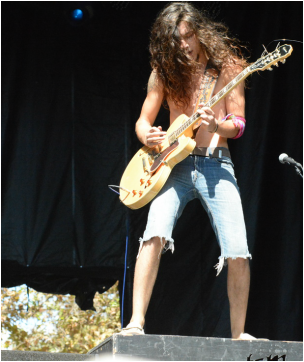 Guitarist Nevada Romo
Guitarist Nevada Romo Something I was curious about is how the members of Anti-Mortem settled on a name meaning preceding death in Latin. No doubt, it’s an epic name, but Latin is just not something you come across often in rock and roll.
“We were really young, and we wanted a really metal name,” explains Romo. “It had got to the point where, we had come to a time where we talked about changing the name. It was like four or five years in, and we couldn’t imagine calling it anything else. So we just always stuck with it. It’s kind of what we are. It symbolizes and names this whole journey. Now, I feel like you can’t kill this thing.”
Smith adds, “It’s been a really long journey up to this point. Imagine in ten years where we’ll be."
“We were really young, and we wanted a really metal name,” explains Romo. “It had got to the point where, we had come to a time where we talked about changing the name. It was like four or five years in, and we couldn’t imagine calling it anything else. So we just always stuck with it. It’s kind of what we are. It symbolizes and names this whole journey. Now, I feel like you can’t kill this thing.”
Smith adds, “It’s been a really long journey up to this point. Imagine in ten years where we’ll be."
For those who don’t know, Anti-Mortem formed in high school, and their lead singer joined when he was in middle school. They’ve been together for nine years now, and average the age of twenty-one.
When you think back to where you were nine years ago, could you even fathom playing where you just did? I ask them.
“Nope,” Romo says definitively.
“Well, kind of, though, for me, because I always thought we were going to be the next Metallica,” laughs Smith. “I remember a promoter asked us if we wanted to do it, and we gave him this thirty minute long, superhero speech about how we’re Metallica. We can do all this! We want to tour and all that.”
Romo adds, “There’s a song on New Southern called, “I Live this Way.” We were really new to the life then, but we’ve really put our words to the test—we have to live this way, earning every day. This life is very crazy, but it’s wonderful, it’s killer.”
What is the best part about living this life?
“Seeing the world and meeting new people. Making fans everywhere,” says Romo.
“Seeing the world is definitely, in my opinion, the best part,” agrees Smith. “Most people don’t even get to leave and go to Cali, and we get to see the whole country in thirty days.”
Romo then begins to talk about what he’s learned from his experiences. “You get really good at, when things go wrong, learning how to just go with the flow and things will work themselves out. I really dig that aspect. Everyday…something comes up, but you don’t worry because you know things will work out. I feel like it’s really cool, because when you have a job and everything, it’s really hard to not stress the hell out. And I’ll say, this is a stressful job, waking up in a different place every day, not recognizing anybody, but it starts to be the familiar place, the place you don’t know."
Romo continues, talking about how Anti-Mortem sounded when they first formed. “There’s a quote from Dave Grohl…he said that in the beginning, when you get together, you just suck, but you suck as friends. And I’d say, we all sucked horribly back then.”
At this point, Smith begins to laugh, as he starts to remember the good old (and sucky) times. “We thought we were great, and that’s what kept the whole thing together, because if we had thought we sucked, we would have quit. Literally, our first show, we called the damn Ford Center, which is a forty five thousand capacity, and said, ‘Yeah, we’re trying to book a show.’ They said, ‘Yeah right, not happening.’”
“It was in Spanish class,” Romo remembers. “I think Zain called and pretended to be our fake manage and they called Zain back, in Spanish [class], and he [the promoter] asked, ‘Is this so-and-so,’ and Zain said, ‘Yeah, this is him.’ The promoter said, ‘we’re getting back to tell you how much it costs to book the Ford Center: five thousand dollars for ticketing.’ We just said, ‘Oh, we just wanted to open for Tool or something.’”
When you think back to where you were nine years ago, could you even fathom playing where you just did? I ask them.
“Nope,” Romo says definitively.
“Well, kind of, though, for me, because I always thought we were going to be the next Metallica,” laughs Smith. “I remember a promoter asked us if we wanted to do it, and we gave him this thirty minute long, superhero speech about how we’re Metallica. We can do all this! We want to tour and all that.”
Romo adds, “There’s a song on New Southern called, “I Live this Way.” We were really new to the life then, but we’ve really put our words to the test—we have to live this way, earning every day. This life is very crazy, but it’s wonderful, it’s killer.”
What is the best part about living this life?
“Seeing the world and meeting new people. Making fans everywhere,” says Romo.
“Seeing the world is definitely, in my opinion, the best part,” agrees Smith. “Most people don’t even get to leave and go to Cali, and we get to see the whole country in thirty days.”
Romo then begins to talk about what he’s learned from his experiences. “You get really good at, when things go wrong, learning how to just go with the flow and things will work themselves out. I really dig that aspect. Everyday…something comes up, but you don’t worry because you know things will work out. I feel like it’s really cool, because when you have a job and everything, it’s really hard to not stress the hell out. And I’ll say, this is a stressful job, waking up in a different place every day, not recognizing anybody, but it starts to be the familiar place, the place you don’t know."
Romo continues, talking about how Anti-Mortem sounded when they first formed. “There’s a quote from Dave Grohl…he said that in the beginning, when you get together, you just suck, but you suck as friends. And I’d say, we all sucked horribly back then.”
At this point, Smith begins to laugh, as he starts to remember the good old (and sucky) times. “We thought we were great, and that’s what kept the whole thing together, because if we had thought we sucked, we would have quit. Literally, our first show, we called the damn Ford Center, which is a forty five thousand capacity, and said, ‘Yeah, we’re trying to book a show.’ They said, ‘Yeah right, not happening.’”
“It was in Spanish class,” Romo remembers. “I think Zain called and pretended to be our fake manage and they called Zain back, in Spanish [class], and he [the promoter] asked, ‘Is this so-and-so,’ and Zain said, ‘Yeah, this is him.’ The promoter said, ‘we’re getting back to tell you how much it costs to book the Ford Center: five thousand dollars for ticketing.’ We just said, ‘Oh, we just wanted to open for Tool or something.’”
It says somewhere, in the depths of random information that one can find on a band, that Anti-Mortem started out playing in a barn. Obviously, that being the most stereotypical band start-up story, I wanted to hear more.
“At our old house that we lived at before the band, my dad was always—he would always collect every car he had,” explains Smith. “He had just any vehicles—Chevelles or GMZ trucks or el Caminos, whatever. He has all these vehicles and none of them work, because he’s had them over the course of twenty-five, thirty years. He just doesn’t sell anything. So the cars, needing storage, the barn and the shop are all full of vehicles, and we just cleared out half the shop and moved the vehicles in the bigger barn, and we built a stage in there and we started practicing. We didn’t buy no cars, we had to fix the ones in there first.”
Have you ever gone back home to play in the barn again? I inquire.
“We practice in there!” exclaim Romo and Smith in unison.
Smith says, “It’s hot as hell, but we practice there.”
“It’s cold as hell, too,” adds Romo.
“It’s the conditioning of tour,” says Smith. “In the winter our fingers are freezing off and we can barely play guitar or play drums. Summer, we’re on stage at Aftershock at noon.”
On a slight tangent, Romo says, “When you’re first starting out, you either have a van or you have something that should have been a van. There’s no comfort at the beginning… We got through that. We were uncomfortable, so we’re uncomfortable here. It’s okay. WE LIVE THIS WAY!”
“At our old house that we lived at before the band, my dad was always—he would always collect every car he had,” explains Smith. “He had just any vehicles—Chevelles or GMZ trucks or el Caminos, whatever. He has all these vehicles and none of them work, because he’s had them over the course of twenty-five, thirty years. He just doesn’t sell anything. So the cars, needing storage, the barn and the shop are all full of vehicles, and we just cleared out half the shop and moved the vehicles in the bigger barn, and we built a stage in there and we started practicing. We didn’t buy no cars, we had to fix the ones in there first.”
Have you ever gone back home to play in the barn again? I inquire.
“We practice in there!” exclaim Romo and Smith in unison.
Smith says, “It’s hot as hell, but we practice there.”
“It’s cold as hell, too,” adds Romo.
“It’s the conditioning of tour,” says Smith. “In the winter our fingers are freezing off and we can barely play guitar or play drums. Summer, we’re on stage at Aftershock at noon.”
On a slight tangent, Romo says, “When you’re first starting out, you either have a van or you have something that should have been a van. There’s no comfort at the beginning… We got through that. We were uncomfortable, so we’re uncomfortable here. It’s okay. WE LIVE THIS WAY!”
Have you ever been out of the country touring before?
“Once,” says Smith. “We played Canada once. We were supposed to go on a tour with Holy Grail and be on a tour in Canada for weeks, but that didn’t work out for us. We’ve played Canada once, and then [we play] the UK in November.”
All of a sudden, lead singer Larado Romo bursts into the interview. Of course, him starting in middle school, I had to ask how he dealt with his voice cracking.
“Well, he hit puberty when he was five,” explains his brother Nevada.
Larado interrupts the teasing fest that ensued to answer the question. “I’ve been at least six foot since they all met me when I was in like sixth or seventh grade. My voice isn’t really that deep, so it’s kind of like my voice developed when I was young and just stayed that way. I worked on my voice for so long that it kind of forced it into development. The best way to deal with it, though, is called warming up and being very careful about the way you do it.”
“Which he didn’t do for the first six years of our band,” laughs Nevada.
“I sounded so manly when I was twelve, because I totally just growled my voice,” laughs Larado. “My favorite type of vocals is like you can actually feel your throat and it doesn’t hurt. I’m so over having a sore throat, because when you actually warm up and you do shit right, it does not hurt at all. You can sing for days. And that’s the best thing in the world, when you go out there and it does not hurt and it feels great.”
My last question, just to wrap everything up, was…random, to say the least. I had noticed that on stage Nevada had abstained from wearing shoes, and had continued to not wear them while making his rounds of the media tent.
Do you have a problem with shoes? I ask.
“No! I just didn’t wear them because it was so hot,” laughs Nevada. “Honestly, at the end of the day, it’s not about wanting to look super poor because I am super poor, it just makes me a little more approachable, I guess. And it’s hot.”
“He just gave me this long spiel about how when you walk barefooted on the Earth, you get its energy,” teases Smith.
“Hey!” exclaims Nevada. “You gave away my hippie-dippie secret. Nobody’s supposed to know that!”
“Once,” says Smith. “We played Canada once. We were supposed to go on a tour with Holy Grail and be on a tour in Canada for weeks, but that didn’t work out for us. We’ve played Canada once, and then [we play] the UK in November.”
All of a sudden, lead singer Larado Romo bursts into the interview. Of course, him starting in middle school, I had to ask how he dealt with his voice cracking.
“Well, he hit puberty when he was five,” explains his brother Nevada.
Larado interrupts the teasing fest that ensued to answer the question. “I’ve been at least six foot since they all met me when I was in like sixth or seventh grade. My voice isn’t really that deep, so it’s kind of like my voice developed when I was young and just stayed that way. I worked on my voice for so long that it kind of forced it into development. The best way to deal with it, though, is called warming up and being very careful about the way you do it.”
“Which he didn’t do for the first six years of our band,” laughs Nevada.
“I sounded so manly when I was twelve, because I totally just growled my voice,” laughs Larado. “My favorite type of vocals is like you can actually feel your throat and it doesn’t hurt. I’m so over having a sore throat, because when you actually warm up and you do shit right, it does not hurt at all. You can sing for days. And that’s the best thing in the world, when you go out there and it does not hurt and it feels great.”
My last question, just to wrap everything up, was…random, to say the least. I had noticed that on stage Nevada had abstained from wearing shoes, and had continued to not wear them while making his rounds of the media tent.
Do you have a problem with shoes? I ask.
“No! I just didn’t wear them because it was so hot,” laughs Nevada. “Honestly, at the end of the day, it’s not about wanting to look super poor because I am super poor, it just makes me a little more approachable, I guess. And it’s hot.”
“He just gave me this long spiel about how when you walk barefooted on the Earth, you get its energy,” teases Smith.
“Hey!” exclaims Nevada. “You gave away my hippie-dippie secret. Nobody’s supposed to know that!”
If you haven't heard or heard of Anti-Mortem, now is the time to watch these YouTube videos below and then buy their album New Southern, featuring awesome songs like "100% Pure American Rage" and "Stagnant Water."
| | |
| Zoe Adler is a music journalist from Long Beach, California. Besides her website, which is her pride and joy, she works with the GRAMMY Foundation and the Long Beach Independent. Additionally, Ms. Adler is a musician, spending half of her time playing the flute, piccolo, trombone, and marching baritone. She has been with TeenView Music since the very start and hopes to make something of it in the future. |
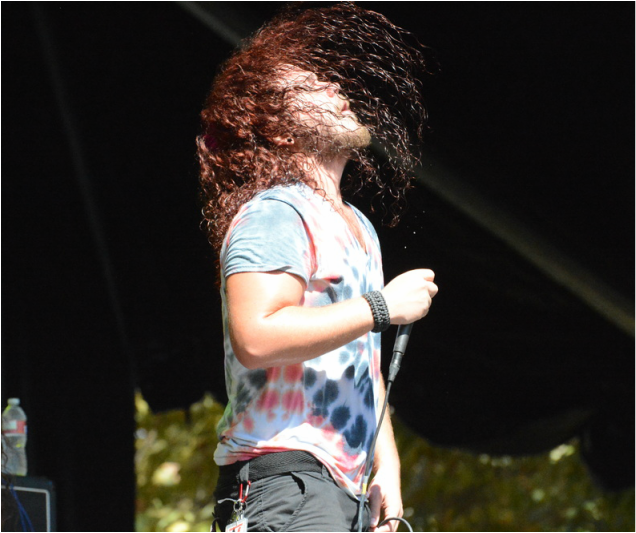
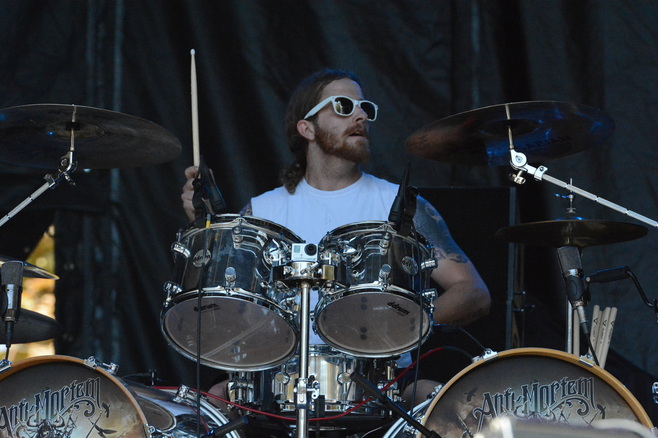

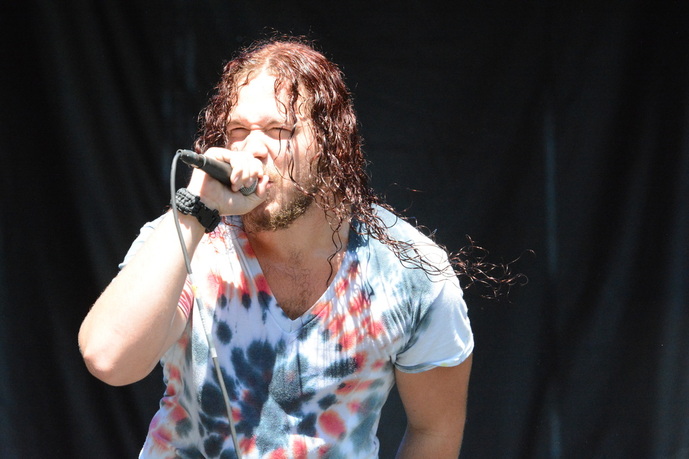
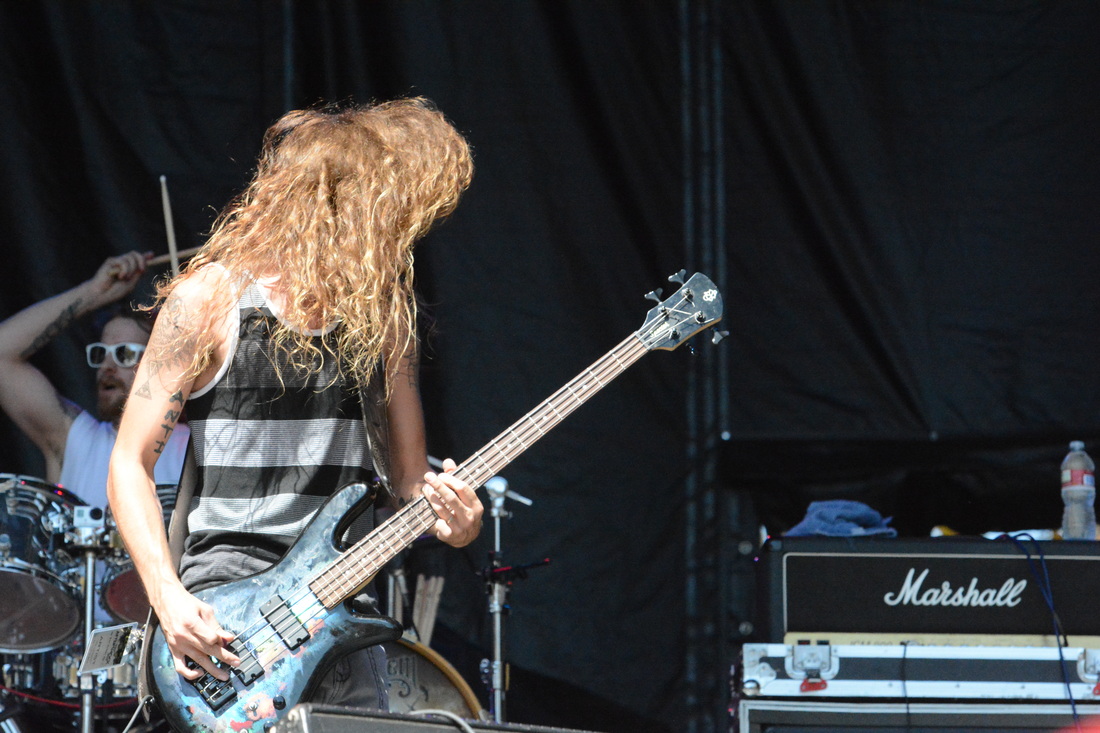

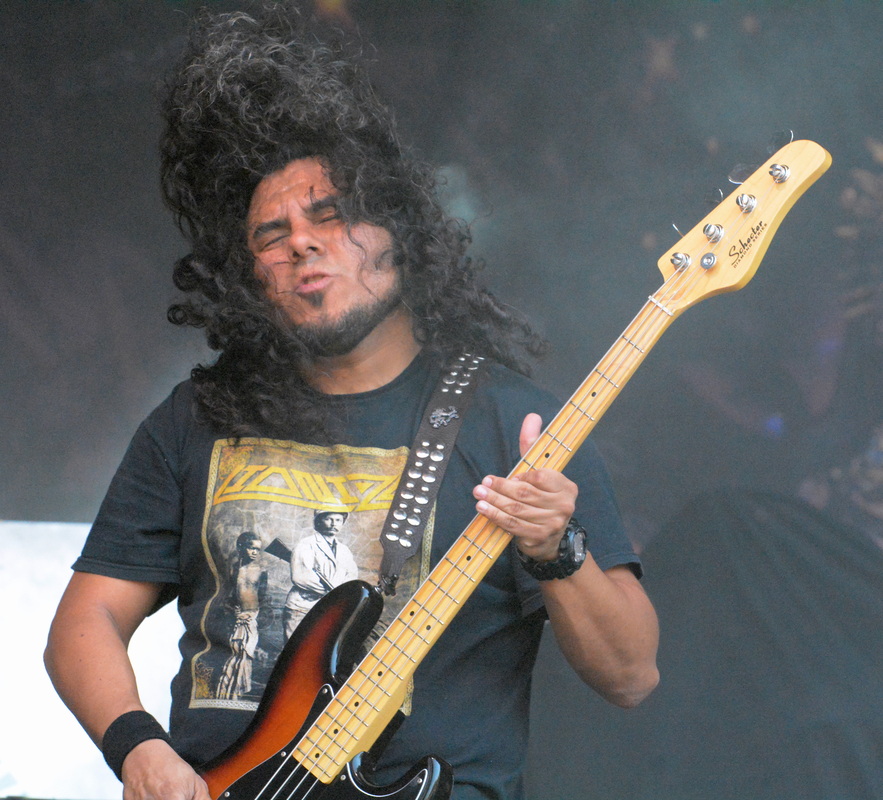
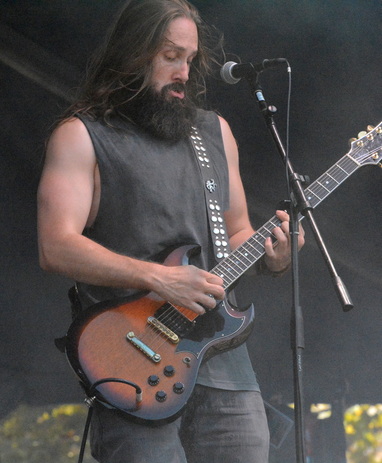
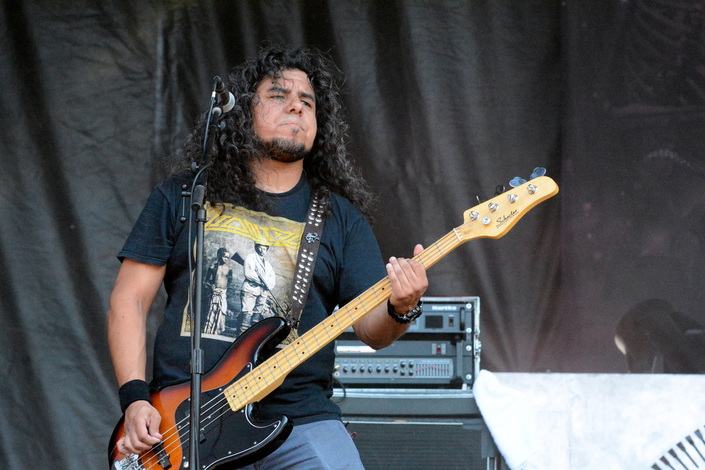
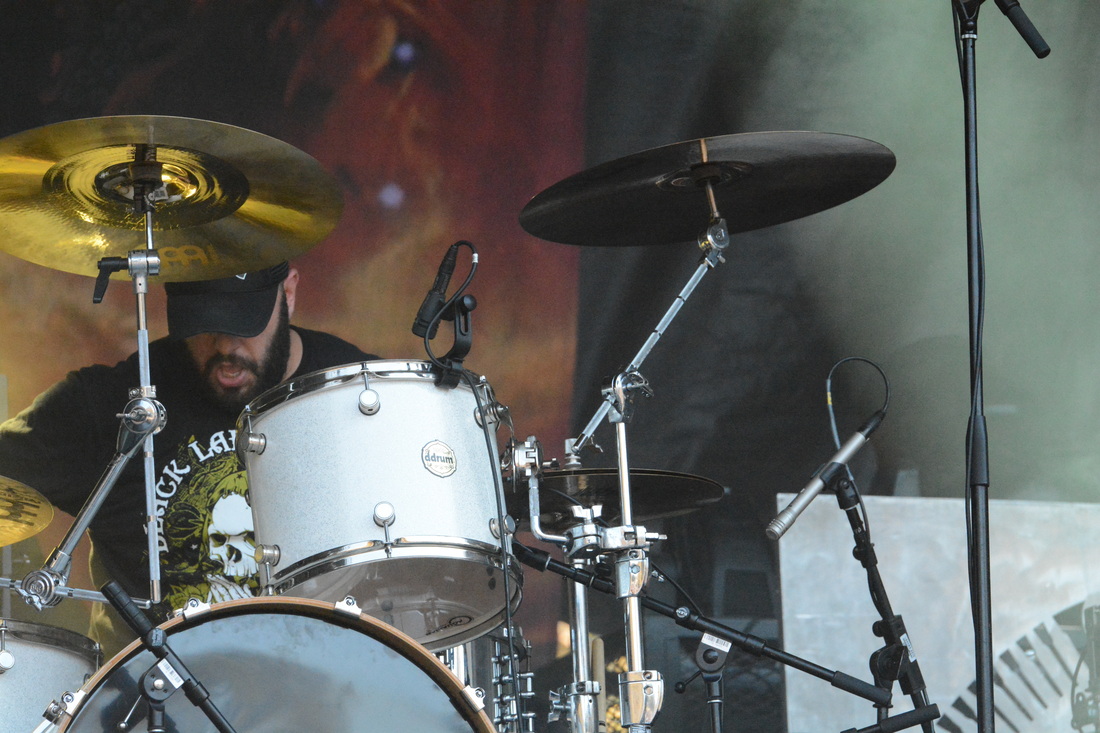

 RSS Feed
RSS Feed
